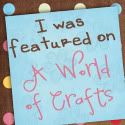The younger children and I have enjoyed using a new science program for the last several weeks. This Experience Biology: Elementary program is being created by Luke and Trisha Gilkerson, as is an Experience Astronomy: Elementary program, both of which are a part of Journey Homeschool Academy. They also have an astronomy course for high school.
We have lifetime access to this course that is geared toward children ages 6-11. Though the main portion of the program is online, the program has been designed with different learning styles in mind. While online we watch the main video lesson and the memory video, but there are also book recommendations, hands-on activities (very important in our homeschool), memory work, copywork, and quizzes. So, a person who is interested in using this program would need a computer with internet access, a printer, access to the recommended (but not mandatory) books, and supplies for activities (there is a section where you can find the complete activity supply list, plus they are listed in each lesson).
When I first log into the program, I come to my dashboard.
From here the children or I click onto the Experience Biology: Elementary course.
Luke and Trisha Gilkerson join us onscreen to teach the lesson.
They are planning for the program to have a total of 30 lessons. If you do one lesson a week, the course will last an entire school year.
To the left of the screen you will find the list of lessons. When you click to expand it will reveal the lesson, memory video and the link for the extra material. This extra material includes the hands-on activity instructions plus any needed printables for the activity, copywork pages in print and cursive, and flashcards for the memory work.
Here is a list of all the lessons that have been added to the program so far.
- Lesson 1: What is Life?
- Lesson 2: The Building Blocks of Life
- Lesson 3: The Secret Code of Life!
- Lesson 4: Fueled Up!
- Lesson 5: What's in a Name?
- Lesson 6: Biomes Everywhere!
- Lesson 7: Itsy Bitsy Teeny Tiny Creatures
- Lesson 8: The Junk Drawer Kingdom
- Lesson 9: The Fungus Among Us!
- Lesson 10: What is a Plant?
- Lesson 11; The Wide World of Plants
- Lesson 12: Mean, Green, Energy Making Machine
- Lesson 13: Roots and Shoots
- Lesson 14: The Reason for Flowers
- Lesson 15: It Begins with Seed
- Lesson 16: Amazing Animals
- Lesson 17: Silly Sponges
- Lesson 18: Wiggly Worms
- Lesson 19: Majestic Medusas and Patient Polyps (Cnidarians)
As we work our way through the lessons, we can mark them complete.
Luke and Trisha do a great job teaching the individual lessons. I love that they also take us "Back in Time" to learn the history behind the lessons.
I especially like that they use props from the Back to the Future movies (the Delorean and the Flux Capacitor make an appearance in each lesson).
So far, while going back in time, we have learned about some interesting scientific history facts.
In Lesson 1 we went back to the beginning of creation.
In Lesson 2 we went to the year 1665 and learned a bit about Robert Hook and his homemade microscope and his work in discovering and naming cells.
In Lesson 3 we found ourselves in Cambridge in the mid 1900's with James Watson and Francis Crick discovering DNA.
In Lesson 4 we learned about Jan Baptista van Helmont who lived in the early 1600's in Belgium. Did you know back then there was the belief that trees ate the soil to grow?
In Lesson 5 we went to the year 1732 and learned about Carl Linnaeus and his exploration of plants, animals, and minerals as he worked on a classification system.
I can't wait to see where and when we go next.
After watching the lesson video, the children watch the memory video. Luke and Trisha will tell the students what specific details out of the lesson they want them to focus on and memorize. And we have flashcards to help us do just that.
I have the children work on both their print and cursive.
I love that Harold has been particularly excited about practicing his cursive. It has improved quite a bit during this past month.
What is really exciting is that the program also includes a hands-on activity with every lesson.
Their favorite activity was creating DNA out of licorice, toothpicks and colorful mini marshmallows.
But they've also colored different types of cells, following the instructions which also gave descriptions of each of the different cell parts.
The did some cutting and gluing while figuring out whether the picture was a producer, consumer or decomposer.
And they have used cute little monster/creature cards to work on their classifying skills. I loved that they both had some unique ways of sorting their creatures.
And we finish up our week by having the children take the lesson's quiz. There are usually 7-9 questions, either multiple choice or true/false.
I love that these lessons have a variety of ways for the children to learn, and that it is very flexible. The children are introduced to some detailed information, but aren't expected to remember everything they are introduced to. And because we have lifetime access, we can go back through the course when they get older, to have them work on learning more information, if we so choose. Maybe at that point we will add in the recommended books. Unfortunately that was something we couldn't do this time because of limited library access due to covid-19. However, there was enough information given in the videos, that I wasn't concerned about not having the books.
I appreciate the resources that are provided, such as the quiz answer key (in case mommy isn't quite sure what answer they are looking for), a complete recommended reading list given in both lesson order and alphabetical order, and a complete supply list for all the activities.
This is a wonderful science curriculum for elementary aged children, and I look forward to working through the remainder of the course in the coming school year. I highly recommend it for your homeschoolers.
Don't forget to click on the banner below to see what my fellow Crew Mates had to say about the different science courses available from Journey Homeschool Academy.




















































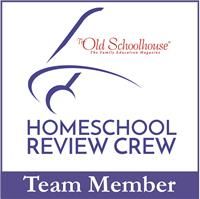
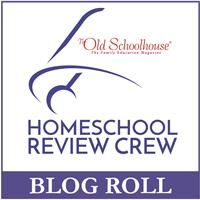









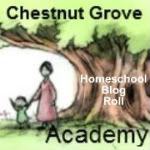




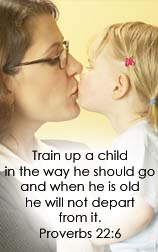



![[PREMIO2009.png]](https://blogger.googleusercontent.com/img/b/R29vZ2xl/AVvXsEjXD_Gx-wZ9EM5hXKrEYLksEBkYfRQtmb8VDVTDG_yyLggQoFIstZsh4zszdG20KqErZicRzEhiNYLty7j3IMXJYsABqkXjr8pp-ncj71xCbpxlXGbGpZq2fTuDQqq1RMKV4DPcDBnBViA/s1600/PREMIO2009.png)
